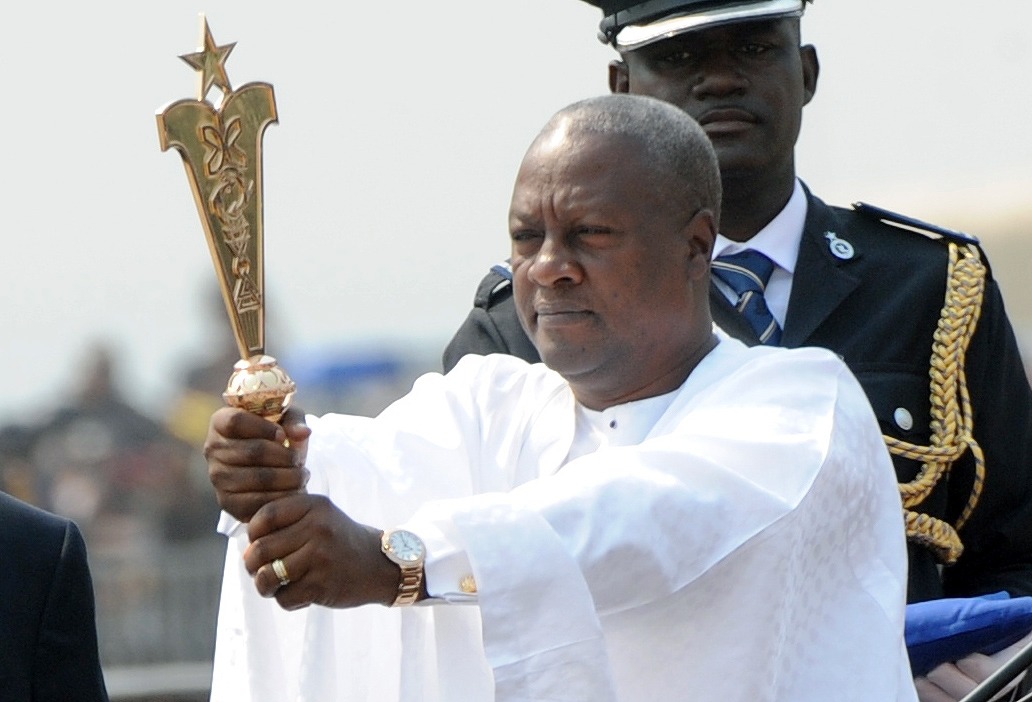John Dramani Mahama Returns to Power: Envisaging Ghana’s New Era of Prosperity and Stability

The inauguration of John Dramani Mahama as Ghana’s newly elected president on Tuesday, 7th January 2025, marks the beginning of a significant chapter in the nation’s democratic history.
This momentous occasion, held at the Black Star Square in Accra, symbolises not only a peaceful political transition but also a renewed hope for addressing Ghana’s pressing challenges.
The ceremony attracted global attention, with 21 Heads of State, including Nigeria’s President Bola Ahmed Tinubu, three Vice Presidents, four Ministers, and 24 envoys among the distinguished guests.
The unprecedented attendance underscored Ghana’s enduring reputation as a beacon of democracy in West Africa, a region grappling with political instability and military takeovers.
Mahama’s victory in the December 2024 presidential election represents a remarkable political comeback.
The 66-year-old opposition leader and former president triumphed over an incumbent administration, securing a strong mandate to lead the world’s second-largest cocoa producer.
His running mate, Vice President-elect Professor Jane Naana Opoku-Agyemang, also makes history as the first woman to hold the position.
A Legacy Revisited
Mahama’s return to the presidency is both a testament to his enduring political relevance and a reflection of Ghanaians’ desire for change.
His previous tenure from 2012 to 2016 was marked by both achievements and setbacks. Despite challenges, including power shortages, macroeconomic instability, and corruption allegations, Mahama demonstrated a commitment to national development, especially through investments in infrastructure and energy.
One of his administration’s notable achievements was the initiation of significant road and healthcare projects, such as the expansion of the Tamale Teaching Hospital and the construction of the Kwame Nkrumah Circle Interchange.
However, a legacy of unresolved energy sector issues and economic mismanagement haunted his presidency, creating a complex foundation for his return.
Expectations Amid Daunting Challenges
Ghana’s current economic landscape presents a daunting challenge as the country currently grapples with a cost-of-living crisis, sovereign debt default, and reliance on an International Monetary Fund (IMF) bailout.
According to a Reuters’ report, while the economy shows signs of recovery, inflation stands at 23%, driven by rising food prices, and youth unemployment remains a critical concern.
Mahama has pledged to prioritise food production and invest in agriculture to ensure food security and tackle inflation.
Experts like Professor Godfred Bokpin of the University of Ghana emphasise the importance of addressing the immediate needs of ordinary Ghanaians, who are growing increasingly impatient with the democratic process.
“Ghanaians are hungry for tangible results. The average citizen is asking what democracy has delivered for them,” Bokpin noted.
Key Priorities
According to reports, the energy sector remains a pressing issue, with arrears to service providers exceeding $2.5 billion.
Bright Simons, Vice-President at the IMANI think tank, told Reuters that the sector is in a critical state, requiring urgent financing agreements with private power producers.
Mahama’s administration is expected to seek sustainable solutions to this perennial challenge to avoid stalling the nation’s nascent economic recovery.
“The outgoing government kept the system running by bandaging open sores. The festering wounds are now Mahama’s to heal,” Simons remarked.
Mahama has also pledged to tackle entrenched corruption, a move analysts see as crucial for regaining public trust and attracting foreign investment.
During his campaign, he committed to implementing stronger anti-corruption measures and ensuring greater transparency in governance.
“Curbing corruption will not only restore trust but also create a more enabling environment for economic growth,” Bokpin observed.
A Vision for Africa’s Growth
Beyond Ghana, Mahama’s presidency holds implications for Africa’s broader political and economic landscape.
As a seasoned statesman, he is well-positioned to advocate for regional cooperation in tackling issues such as climate change, trade imbalances, and political instability.
His leadership could inspire a renewed focus on democratic governance in a region increasingly troubled by authoritarianism.
John Dramani Mahama’s second stint as president offers an opportunity for redemption and progress.
With a two-thirds parliamentary majority and a strong mandate, he is expected to make bold decisions to stabilise the economy, revitalise key sectors, and improve the livelihoods of ordinary Ghanaians.
As the nation celebrates its democratic resilience, all eyes are now on Mahama’s administration to deliver on its promises.
For Ghanaians, this is not just the dawn of a new presidency but a chance to redefine the future of their democracy and prosperity.







